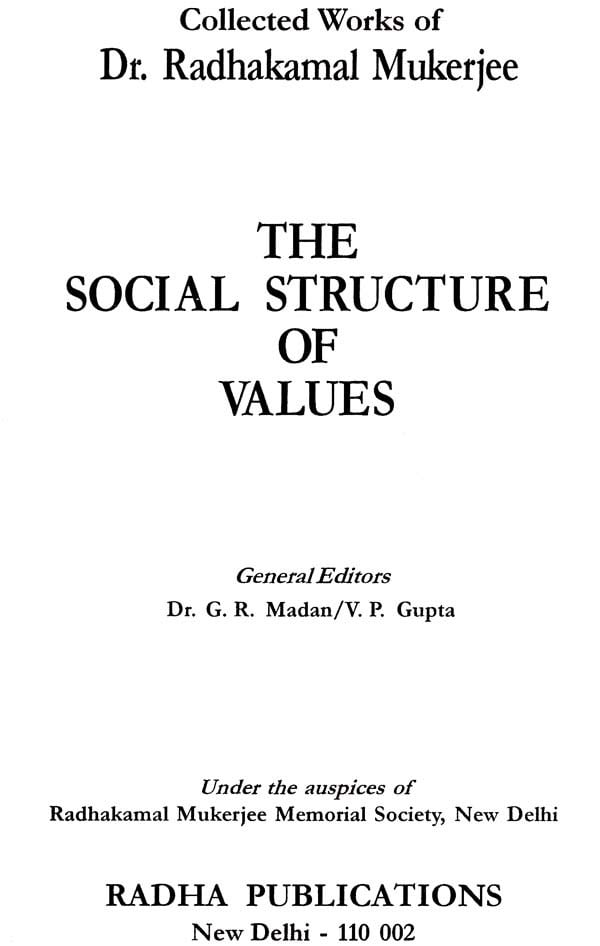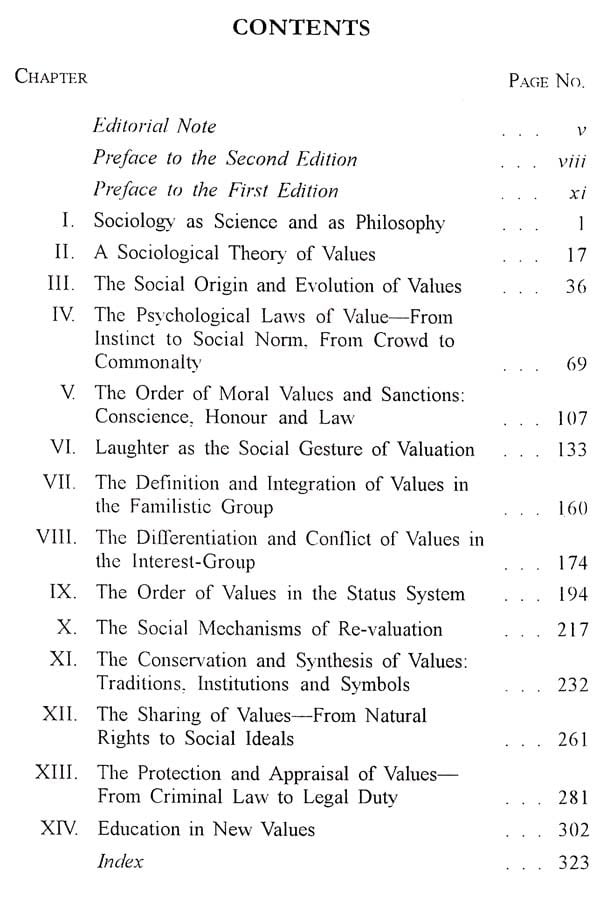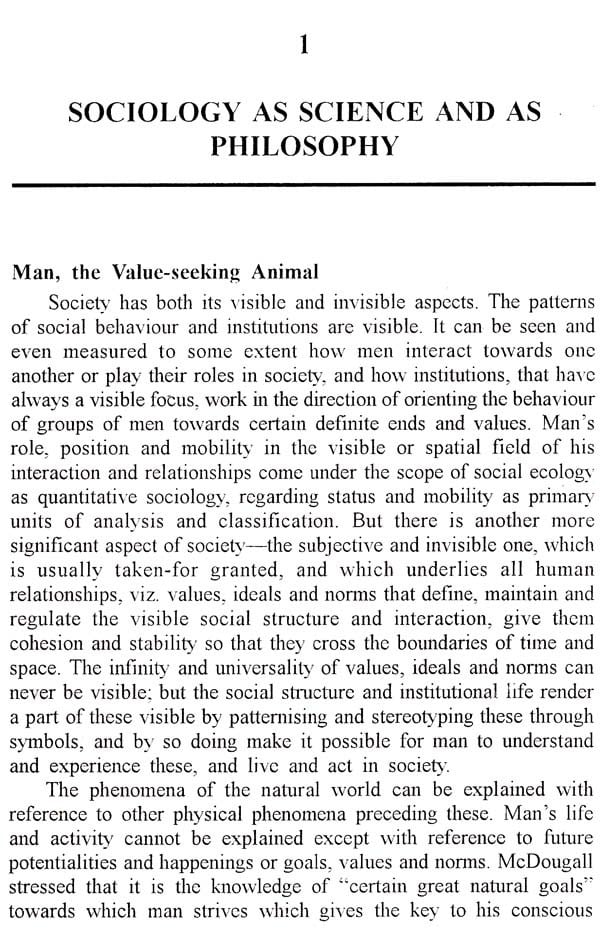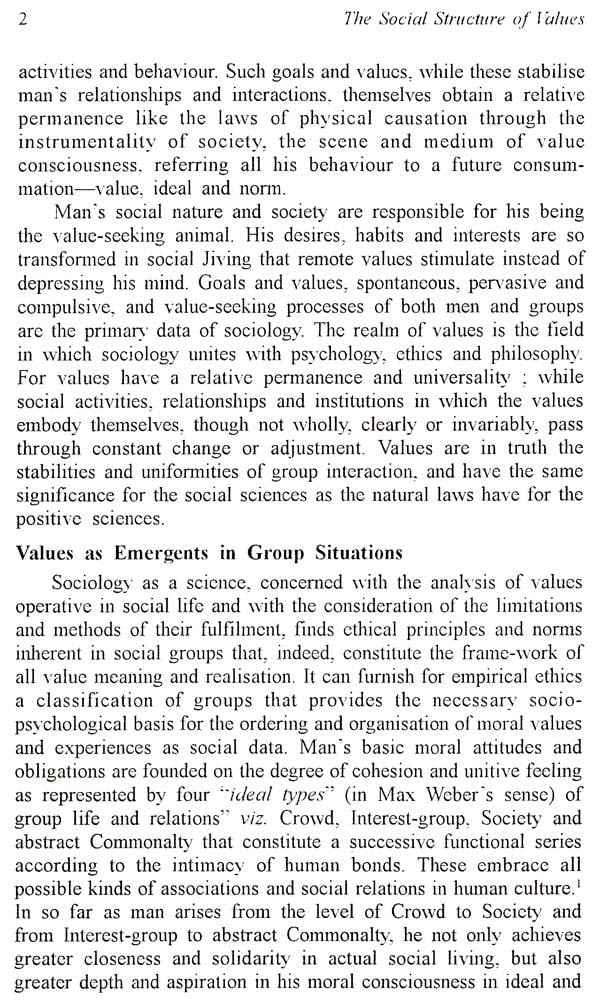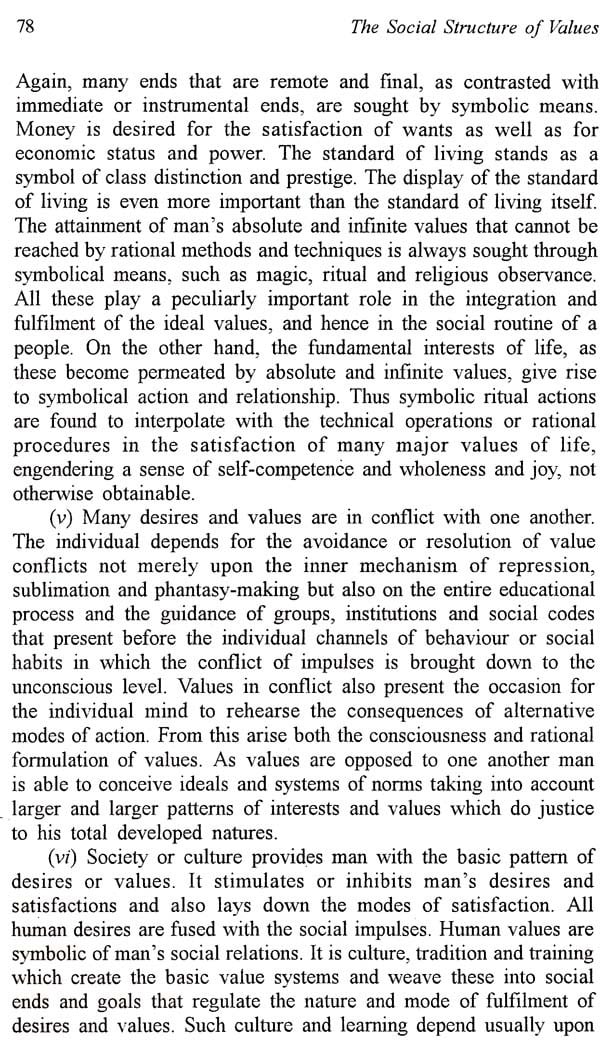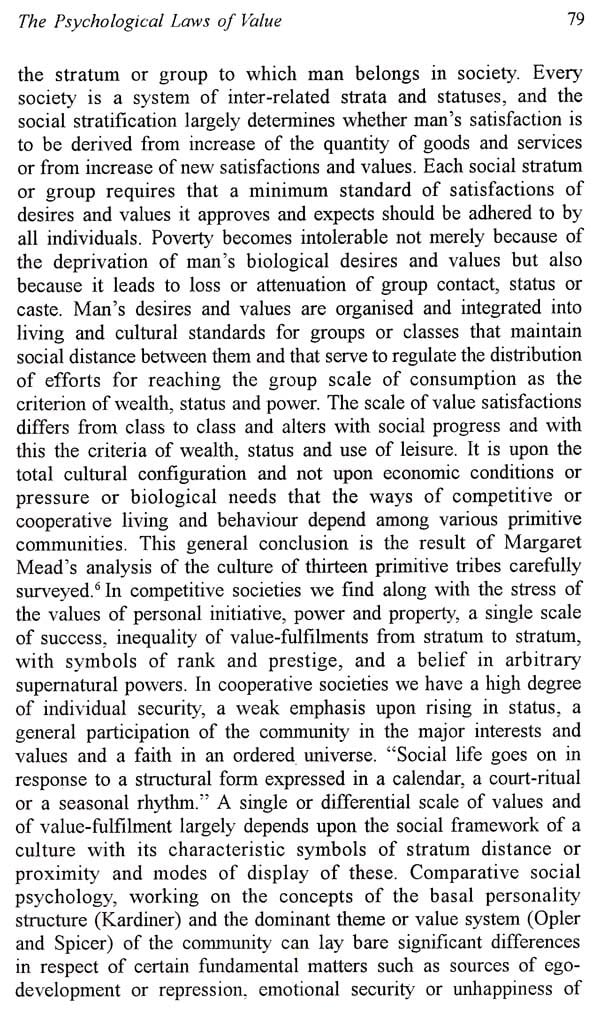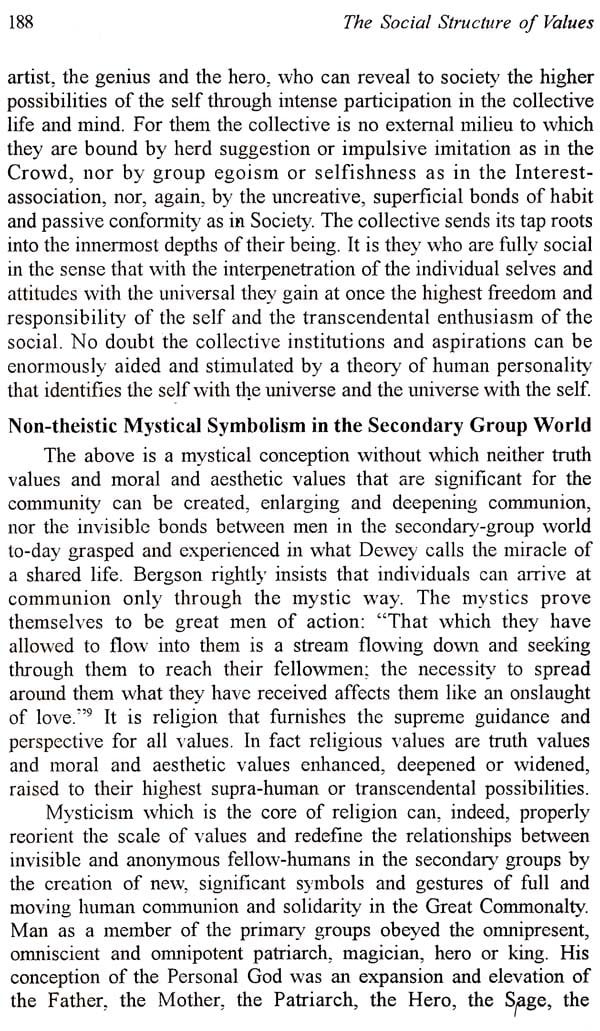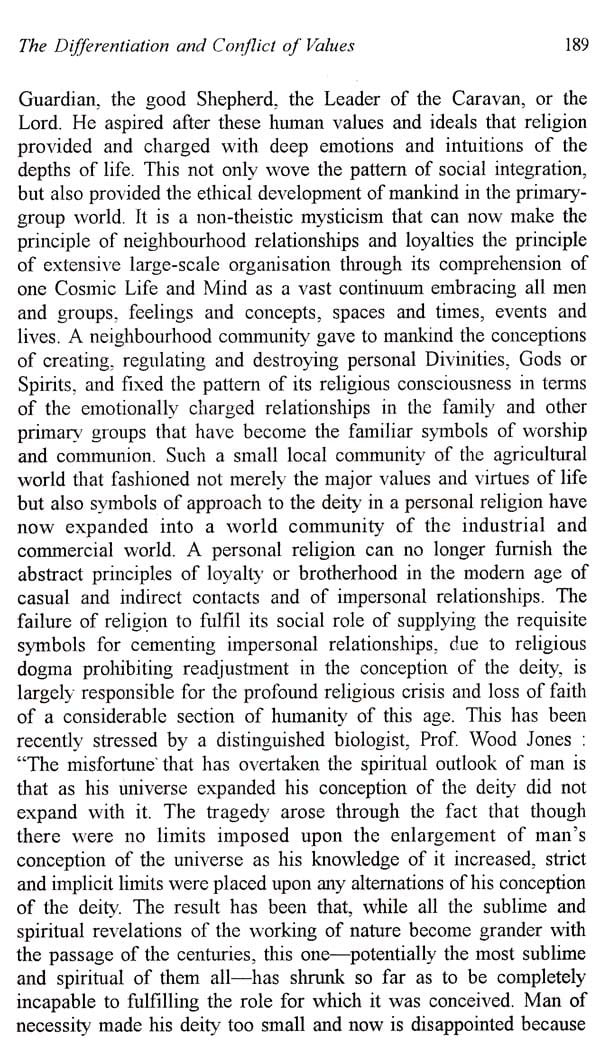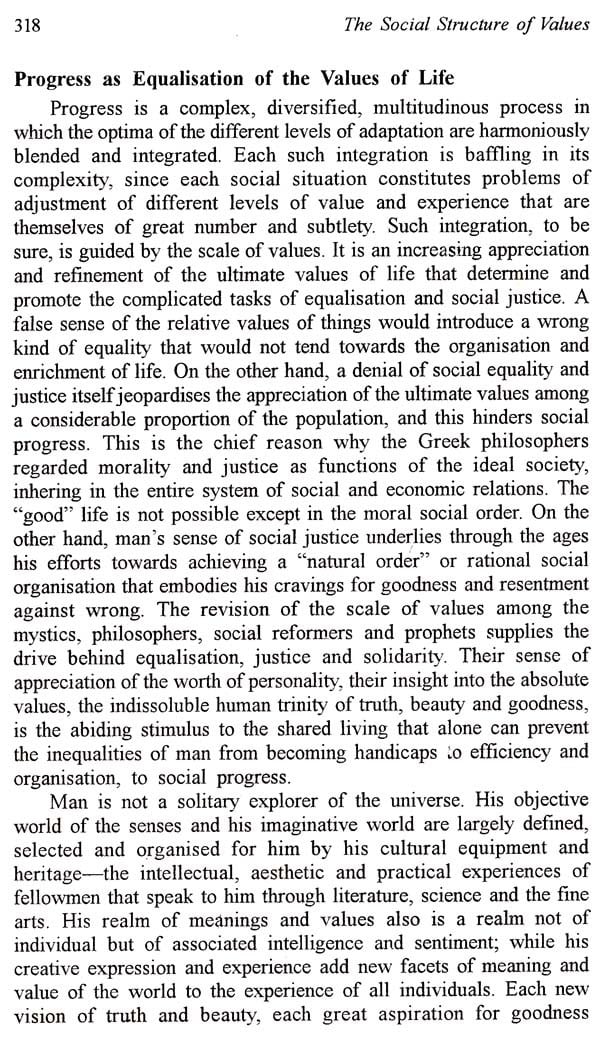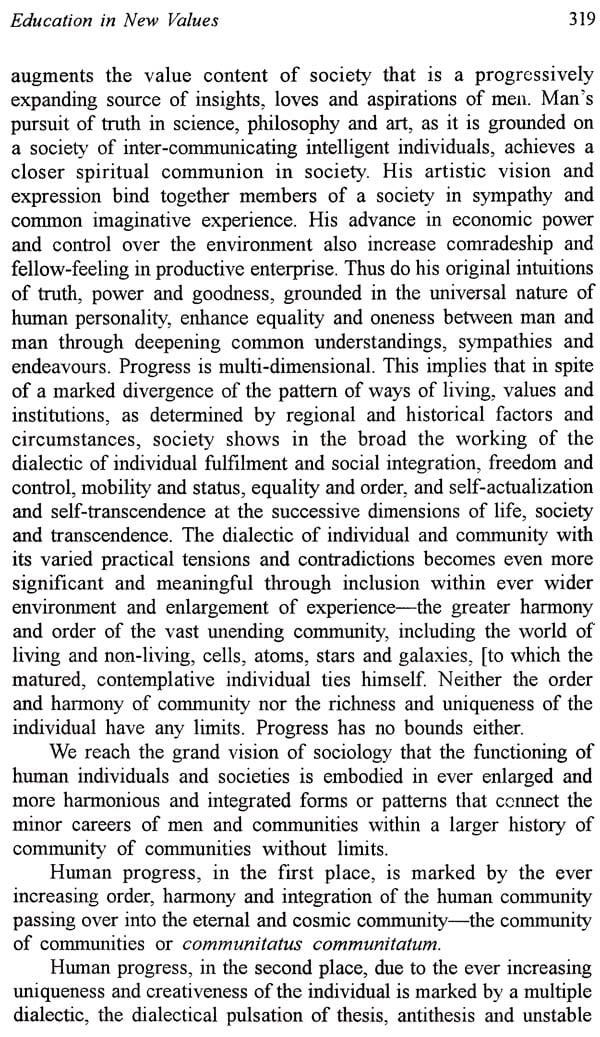About the Book The Social Structure of Values is one of the most revealing books of Dr. Radhakamal Makerjee, one of the foremost thinkers of our era Karl Mannheim had remarked that prior to this book there was no systematic work on the sociology of values The theory of values is considered to be the most important contribution of professor Mukherjee’s who interprets society as an organisation and accumulation of values.
The book is based on the lectures, the learned scholar delivered at some of the most prestigious universities of the world, Harvard, Columbia, Maryland, Washington and London, in the presence of the distinguished thinkers like Sorokin, Zimmerman, MacIver and Airport.
Dr. Mukerjee in the present work has analysed sociology as a science and philosophy. He has articulated a sociological theory of values and traced their social origin and evolution. Dr. Mukerjee feels that the methodology of all social services is undergoing transformation with a view to give guidance to man for his life, values and fulfillment. The dualism between facts and values, individual and society, egoism and altruism, humanity and cosmos is now fading away. The unity of society and intrinsic values is being emphasized and possibilities of a natural integration of social sciences are gradually unfolding. Dr. Mukerjee has under lined values as essential features of the new outlook in sociology. He aims to achieve universal values and the unlimited society of mankind and cosmos. He believes that different individuals, groups and institutions work for social interests in different ways but the issues of adjustment, integration and balance is always fundamental. It can be achieved through the formation and assimilation of norms and ideals.
About the Author Dr. Radhakamal Mukerjee (1889-1968) was one the social scientists of India. was Professor of Economics and Sociology at Lucknow University and later on Vice-Chancellor at the same University? He played an important and constructive role in country's freedom struggle. He was invited to deliver lectures many Indian universities and also abroad including U.K., Europe, U.S.A. and U.S.S.R. He was highly original philosopher of history, penetrating interpreter of civilization and gifted art theorist. He wrote more than 50 books covering these and other subjects. He held important positions in some national and international bodies. An American reviewer has considered him to have written "some of the most important works our century".
Preface A revised edition of the volume has been overdue. During the last two decades the naive social Darwinism, naturalistic psychologist and cultural determinism in which the social sciences formerly rooted themselves have encountered serious challenges The methodology of all social sciences is undergoing transformation with a view to give guidance to man for his life, values and fulfillment. The dualism between facts and values, individual and society, egoism and altruism, community and cosmos, self-actualization and self transcendence that has thwarted sociological analysis and synthesis is now fading away. The unity and openness of society, values and the human person are emphasized from various angles. For psychology comes the important finding that dichotomizing marke a low level of personality development and of social and psychological functioning. All this is having its impact on the core of sociological theory. Interdisciplinary studies that are characteristic only of the last two decades expose the unwisdom of the previous emphasis of the closeness and relativity of values and social systems and treat the system of values on a par with language, technology and material culture. "Experiments with groups," has aptly remarked Kurt Lewis, "will lead to a natural integration of the social sciences and it will force the social scientist to recognize as reality the totality of factors which determine group life."
To discover values, whether intrinsic and ultimate or instrumental and immediate, as historical and workable theories pragmatically and programmatically; to appreciate the continuity between the intrinsic and the instrumental values in all means-ends-scheme; and to clarify, harmonies and adjust values-the laws or uniformities in the social cosmos-as dynamic expressions of the richness and uniqueness of the human personality and of social integration and harmony are essential features of the new outlook in sociology.
**Contents and Sample Pages**
